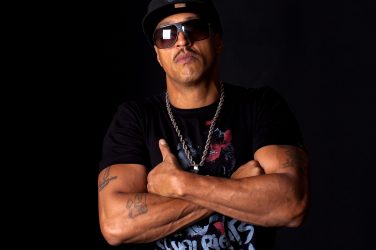Has there ever been a public space in Brazil more emblematic than Praça Onze de
Junho? This defunct square at the heart of the Cidade Nova in Rio de Janeiro is
celebrated as the birthplace of the maxixe and the samba and one of the
cradles of choro.
It was here that “Pelo Telefone” was composed.
It was here that the escolas de samba first began parading at carnaval.
It is here that the Passarela do Samba (aka Sambódromo) and the Terreirão do Samba are located, in a vast wasteland of urban decay.

“Boêmios” by Heitor dos Prazeres
No other square is lauded or mourned in so many popular songs.
Yet the entire history of this cherished spot comprises no more than ninety years.
The physical square is gone, but its spirit remains. This is the first vignette in a series that may become a concise history of a place that lives on in the imagination.
Aside from Sinhô’s “A Favela Vai Abaixo” (1928), which mentions the Cidade Nova (“Vou morar na Cidade Nova pra voltar meu coração para o morro da Favela”), the earliest songs I was able to find about Praça Onze date from the 1930s, when the square was in its heyday.
The first samba is a typically carefree malandro manifesto with a strong maxixe flavor, swearing off any tenderness toward the opposite sex. In contrast, the characters in the second and third sambas yearn for love, but things haven’t turned their way.
Na Praça Onze
(Gonçalves de Oliveira; 1931)
Sou enfezado
Eu sou mesmo da coroa
E essa gente da Gamboa
Só me olha com respeito
Não tenho amor
Minha amante é a navalha
Eu sou filho da canalha
Para amar, não tenho jeito
Na Praça Onze de Junho
Entrei na roda de um samba
Com o meu pandeiro em punho
Eu tirei carta de bamba [bis]
A minha sina
í‰ viver assim sozinho
E ter raiva do carinho
De qualquer bicho de saia
Por isso mesmo
Eu procuro a minha morte
Eu sou filho da gandaia
No amor não tenho sorte
Na Praça Onze de Junho
Entrei na roda de um samba
Com o meu pandeiro em punho
Eu tirei carta de bamba [bis]
Samba recorded by Teobaldo Marques da Gama
and released on Parlophon 13.260-A in January1931. 
Carmen Miranda
Here is the oft-heard tale of the abandoned woman, whose former lover is now the one who suffers while she gloats in revenge.
Ao Voltar do Samba
(Synval Silva; 1934)
Oh Deus
Eu me acho tão cansada
Ao voltar da batucada
Que tomei parte lá na Praça Onze
Ganhei no samba um arlequim de bronze
Minha sandália quebrou o salto
E eu perdi o meu mulato
Lá no asfalto
Eu não me interessei em saber
Alguém veio me dizer
Que encontrou você se lastimando
Com lágrimas nos olhos, chorando
Chora mulato, meu prazer é de te ver sofrer
Para saber quanto eu te amei
E quanto eu sofri para te esquecer
Agora chora mulato, meu prazer é de te ver sofrer
Para saber quanto eu te amei
E quanto eu sofri para te esquecer
Oh Deus
Eu me acho tão cansada…
Eu tive amizade a você
Eu mesmo não sei porquê
Eu conheci você na roda, sambando
Com tamborim na mão, marcando
Agora mulato por você não passo desacato
Eu vou í forra e comigo tem
Ora se tem
Ou esse ano ou pro ano que vem
Samba recorded by Carmen Miranda & Grupo do Canhôto
on 26 March 1934 and released on Victor 33808-A in August 1934.
The hero of this sentimental torch song bears no bitterness or malice toward the popular morena who ignores him:
Foi na Praça Onze
(Max Bulhões/Milton de Oliveira; 1937)
Foi na Praça Onze
Que eu te conheci sambando
A gargalhar…
Vou lembrando aquele dia
Em que cheio de alegria
Quis amor te declarar
Rindo e cantando,
Mandaste esperar…
Sei que nasceste em Mangueira
E sendo morena faceira
í‰s a mais querida mulher do lugar
Se eu sofro do coração
Porque não me dás atenção
Deixa um minuto sequer te amar
Samba recorded by Fausto Paranhos on 22 March 1937
and released on Victor 34166-B in May 1937.
Praça Onze in popular song, part 1.
I’m indebted to the collector Dijalma M. Candido for the recordings.
You can read more about Brazilian music and culture at
Daniella Thompson on Brazil here: http://daniv.blogspot.com/





